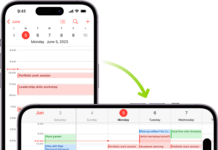Until now, we’re using WhatsApp online on a desktop or on other devices that always require having a phone that was turned on and connected, but a new beta test is attempting to allow multiple devices without using a phone anymore. WhatsApp CEO Will Cathcart and Facebook CEO Mark Zuckerberg discussed the technological challenges of preserving end-to-end encryption in a June interview.
The newly launched restricted public beta test will enable the platform to work across several devices. Users will be able to utilize the service on their phone and up to four other non-phone devices simultaneously. According to WhatsApp, users will access their communications on these different devices, even if their primary phone’s battery has died. This will be like a departure from the present structure, which relies on the phone to maintain communication across many devices. WhatsApp is now only available on the phone when paired to a single account number. Users can use WhatsApp Web to access it from their desktop, but the connection is still reliant on the phone.
According to a blog post on the Facebook engineering site, “each companion device will connect to your WhatsApp independently while retaining the same degree of privacy and security with end-to-end encryption…” with the new multi-device capability. In addition, WhatsApp has “created new technologies to maintain end-to-end encryption” while syncing data including contact names, conversation archives, and starred messages between devices. To make this possible, the business had to “rethink WhatsApp’s architecture and design,” according to the post.
Trending News: Windows 11 is coming with New Entertainment Widget
Also Read Confirmed- Microsoft’s classic computer assistant Clippy might be making a comeback soon
How do I use WhatsApp on many devices?
Because the feature has not yet been rolled out to those using stable WhatsApp releases, you may not be able to utilize it. According to the company’s blog post, they want to “test the experience with a small group of users from the existing beta program.” They will continue to “optimize performance and add a few other features before gradually putting it out more broadly,” according to the statement. As a result, it’s unclear whether the feature will be available to all Android and iOS beta users.
How does WhatsApp support for multiple devices work?
The primary device is now the “sole device capable of end-to-end encrypting communications for another user, initiating calls, and so on.” Companion devices, such as your desktop or laptop, mirror WhatsApp content on your phone and use their user interface (UI).
According to the blog, the phone will no longer be the primary device, and user data will be synchronized “seamlessly and securely” and kept private. Each machine will now have its identity key, thanks to multi-device support. According to the blog, this is a departure from the current approach. A person is identified by a “single identity key from which all encrypted communication keys were extracted.” According to the post, the WhatsApp server will retain a mapping between each person’s account and their device identifiers. When someone wishes to send a message, the server gives them their device list keys.
What about user privacy and end-to-end encryption?
Read: Windows 365 Brings Windows 11 To iOS, iPads, Apple Laptops, And Mac
“The WhatsApp client sending the message encrypts and transmits it N number of times to N number of different devices — those in the sender and receiver’s device lists,” according to WhatsApp. Thus, the message is “individually encrypted with each device utilizing the established pairwise encryption session.” Furthermore, after messages are sent, they are not retained on the server, and WhatsApp uses the Signal Protocol’s scalable Sender Key encryption technique. Moreover, all voice and video communications, including group calls, will be encrypted end-to-end.
WhatsApp claims that by attaching devices to a user’s account, they have attempted to overcome the issues of a compromised server being used to eavesdrop on their conversations. One, security codes have been extended to “now represent the combination of all of someone’s device identities,” allowing their contacts to authenticate the devices to which messages are being sent.

























![The Apex Legends Digital Issue Is Now Live! Apex Legends - Change Audio Language Without Changing Text [Guide]](https://www.hawkdive.com/media/5-Basic-Tips-To-Get-Better-On-Apex-Legends-1-218x150.jpg)







